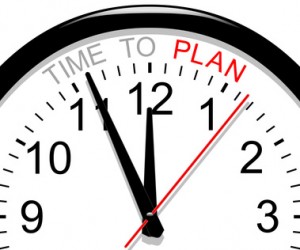 Support systems are important in our personal lives, too. Here’s a post from 2009 that’s illustrates why.
Support systems are important in our personal lives, too. Here’s a post from 2009 that’s illustrates why.
My life changed dramatically in August 2009 when my 87-year-old father fell and required surgery. He was in the hospital for 10 days, then rehab until Oct. 28. What with visiting, acting as patient advocate, and setting up systems to support his return home, I was spending two to three days a week in Santa Barbara. At one point I realized the irony that I was making sure my mother had groceries, but hadn’t had time to do my own grocery shopping in 6 weeks.
Thank goodness I already had three systems in place that really saved my sanity:
- Bill pay and direct deposit – What a relief to realize that all but one bill (the credit card) was already set up for automatic bill pay, and my husband’s paychecks were on direct deposit. There was no extra work to do. This automation was an additional blessing when I was consumed with my father’s illness – everything got paid without me putting in any work.
- Dream Dinners – This is what kept food on the table. Once a month my husband and I attend a meal preparation session for an hour and come home with 36 servings of a minimum of 6 entrees we put in the freezer. I’ve been a loyal member for 8 years. In October I didn’t even have time for the one hour monthly session, but the good folks at Dream Dinners prepared my order for me, and I just needed to stop by and pick it up. I even had them make up extras to take to my mother. Another lifesaver!
- A community of friends and relatives – sometimes we have to accept we are drowning and ask for help. I don’t know what I would have done without my sister, and I cannot come close to expressing my gratitude to her. Another resource was my minister, who used her “minister network” connections in Santa Barbara to publish my request for someone to live-in with my Mom. Although I had also advertised at a local university, it was the congregational appeal that garnered me the most results.
My father died in May, 2010; I still spend one day a week with my mother in Santa Barbara, but it’s planned, and not because of crisis. However, the essence of all disaster planning is to have systems in place, and I encourage you to evaluate what systems you need in place to save your sanity and/or your business. How would your business run if you were sick? [this is essential system #4 on the business systems assessment. If you have not done so yet, you can download this self-assessment from the top right of this page] .
 Some things are just so simple you wonder why no one thought of it before. In the article below, a surgeon talks about the complicated process of keeping patients alive and shares his simple solution for how that process might be streamlined. It’s easy to find applications for your business.
Some things are just so simple you wonder why no one thought of it before. In the article below, a surgeon talks about the complicated process of keeping patients alive and shares his simple solution for how that process might be streamlined. It’s easy to find applications for your business.